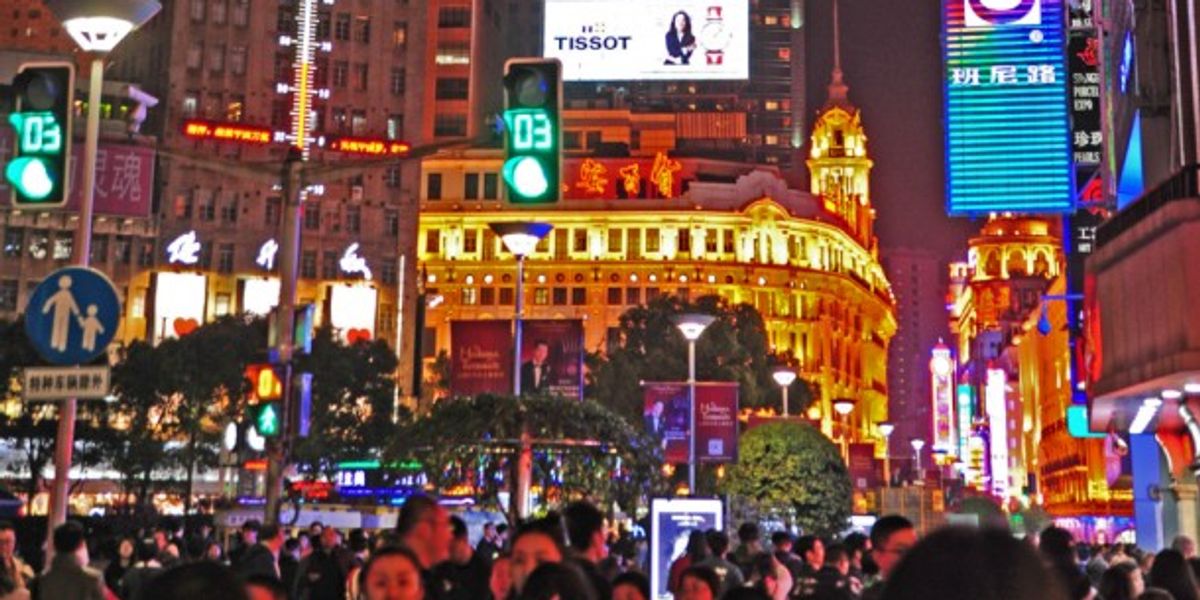antonius123
SENIOR MEMBER

- Joined
- Jan 17, 2010
- Messages
- 2,962
- Reaction score
- -4
- Country
- Location
Can Artificial Intelligence Solve China's Demographic Crisis?
From manufacturing to the service industries, little-by-little robots are approaching the daily activities of human beings. In brief, AI is an irreversible trend. As some have predicted, when robots are fully applied, China will cut more than 240 million jobs. According to the UN's forecast, two-thirds of the labor force in the developing world will be replaced by robots.
The vision also foresees that AI can overcome traditional demographic challenges through the development of the so-called "smart population," based on AI, that will solve all population-related problems. This is derived from the "smart city" or "urban brain" where the public AI system can analyze the situation of the surroundings in real-time, automatically deploying public resources, fixing the bugs in the city's ongoing operations and guiding the infrastructure plans for the future.
A smart population can monitor and analyze in real time the whole demographic issue, solve automatically the problems of population degeneration, aging, overpopulation in urban areas, unbalanced distribution of population and poverty. By fixing the varied bugs of an unbalanced demographic development, it will become the infrastructure of a sustainable population.
For instance, when a city's population is in decline, it will send out messages to encourage population increases. When births are needed, signals will spread that will lead to more male-female coupling, particularly to women of childbearing age. In this sense, a "smart population" would seamlessly and automatically interpret long-term family planning policy.
In July, China's State Council issued a circular stipulating the country's new-generation AI development plan that aims for China to become a main AI innovation hub globally.

 worldcrunch.com
worldcrunch.com
AI & REPRODUCTIVITY
According to World Health Organisation statistics, one out of every seven couples on the planet suffers from reproductive problems. In China, one out of every ten couples suffers from infertility, and the incidence rate rising.
People have long relied on assisted reproductive technology to solve infertility problems, which basically means help in conceiving with artificial insemination or in-vitro fertilization (IVF) — embryo transfer as well as its derived technology.
Now AI is being introduced into these practices to further boost the success rate. With the help of AI, scientists can better predict which embryos will develop. In addition, when AI figures out which embryos have eventually resulted in babies, it will recognize good-quality embryos by self-learning. In other words, AI will be more stable and reliable than the embryologists and will boost the chances of those who can't conceive naturally.
From manufacturing to the service industries, little-by-little robots are approaching the daily activities of human beings. In brief, AI is an irreversible trend. As some have predicted, when robots are fully applied, China will cut more than 240 million jobs. According to the UN's forecast, two-thirds of the labor force in the developing world will be replaced by robots.
The vision also foresees that AI can overcome traditional demographic challenges through the development of the so-called "smart population," based on AI, that will solve all population-related problems. This is derived from the "smart city" or "urban brain" where the public AI system can analyze the situation of the surroundings in real-time, automatically deploying public resources, fixing the bugs in the city's ongoing operations and guiding the infrastructure plans for the future.
A smart population can monitor and analyze in real time the whole demographic issue, solve automatically the problems of population degeneration, aging, overpopulation in urban areas, unbalanced distribution of population and poverty. By fixing the varied bugs of an unbalanced demographic development, it will become the infrastructure of a sustainable population.
For instance, when a city's population is in decline, it will send out messages to encourage population increases. When births are needed, signals will spread that will lead to more male-female coupling, particularly to women of childbearing age. In this sense, a "smart population" would seamlessly and automatically interpret long-term family planning policy.
In July, China's State Council issued a circular stipulating the country's new-generation AI development plan that aims for China to become a main AI innovation hub globally.

Can Artificial Intelligence Solve China's Demographic Crisis?
BEIJING — Over the past decade or so, "The Low-Fertility Trap," a hypothesis put forth by Wolfgang Lutz, Vegard Skirbekk and Maria Rita Testa, respectively Austrian, Norwegian and Italian scholars, has worried many countries facing the risks of an aging population. This includes China. The...
 worldcrunch.com
worldcrunch.com
AI & REPRODUCTIVITY
According to World Health Organisation statistics, one out of every seven couples on the planet suffers from reproductive problems. In China, one out of every ten couples suffers from infertility, and the incidence rate rising.
People have long relied on assisted reproductive technology to solve infertility problems, which basically means help in conceiving with artificial insemination or in-vitro fertilization (IVF) — embryo transfer as well as its derived technology.
Now AI is being introduced into these practices to further boost the success rate. With the help of AI, scientists can better predict which embryos will develop. In addition, when AI figures out which embryos have eventually resulted in babies, it will recognize good-quality embryos by self-learning. In other words, AI will be more stable and reliable than the embryologists and will boost the chances of those who can't conceive naturally.
Last edited:







